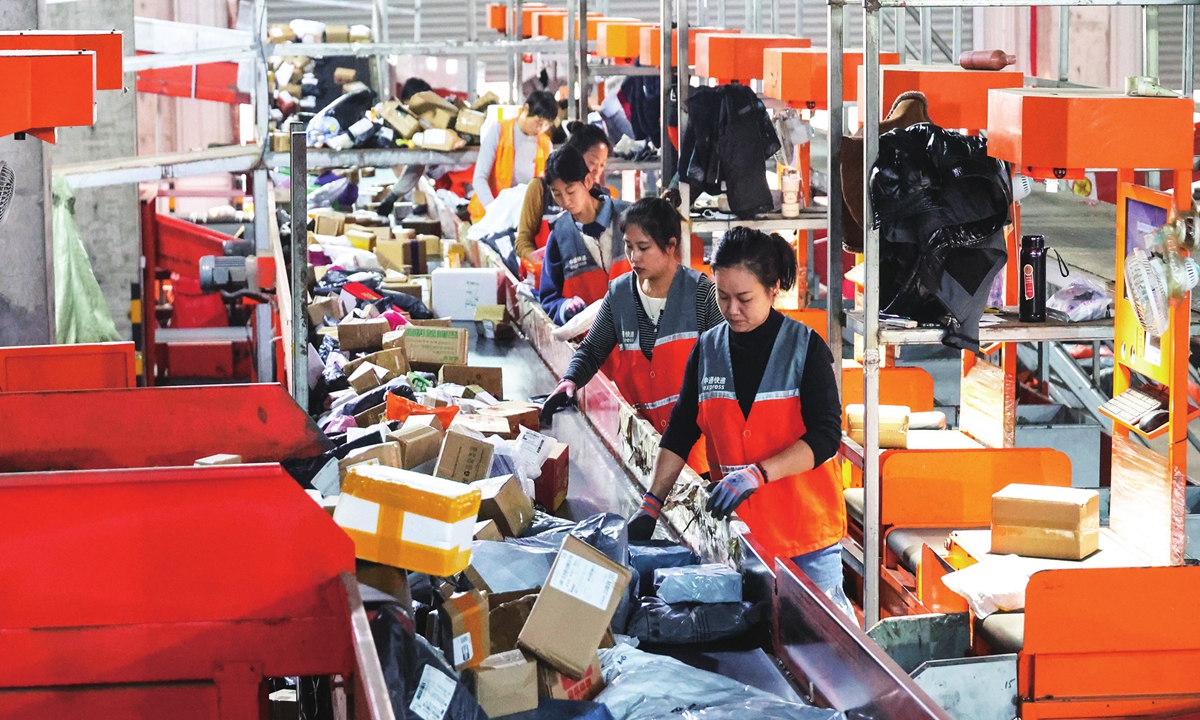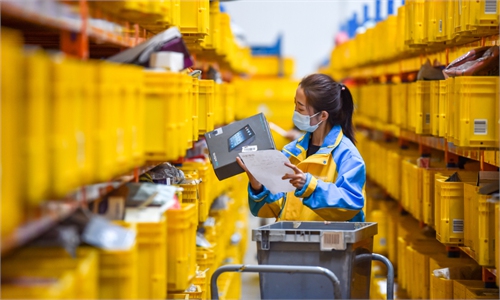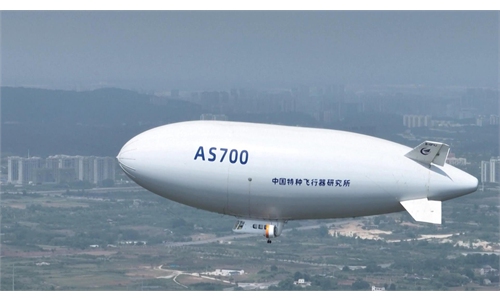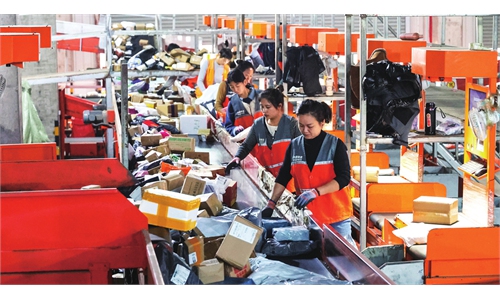China's ‘Double 11’ online shopping festival boosts consumption, logistics
Index tracking e-commerce logistics hits 5-year high

Staff members sort packages at a delivery center in Lianyungang, East China's Jiangsu Province on November 11, 2024, as the "Double 11" online shopping festival drives up the number of domestic packages. Photo: VCG
China's annual "Double 11" online shopping festival reached its peak on Monday night, as e-commerce platforms unleashed a flurry of discounts and red packets in a final push to boost sales.
As shoppers flocked online for last-minute deals, the figures highlighted strong consumer enthusiasm, indicating that China's consumer market has continued to recover steadily, experts said.
While Monday marked the climax of a month-long sales event this year, major e-commerce platforms kicked off their "Double 11" promotional activities as early as October 8.
Those pre-sales and early purchases ahead of November 11 were among factors that drove the nation's sub-index tracking total business volume of the e-commerce logistics index to a five-year high of 133.7 points in October, an increase of 2.5 points from the previous month, according to data released by the China Federation of Logistics and Purchasing on Monday.
Additionally, various regions have issued consumption subsidies for the purchase of home appliances, contributing to a noticeable rise in online consumer demand, the federation said.
As of midnight on Monday, Tmall's livestreaming rooms experienced remarkable growth in sales. More than 100 livestreaming rooms generated sales exceeding 100 million yuan ($13.9 million), a new record. Impressively, 32 of these livestreaming rooms saw their year-on-year growth rates surpassing 100 percent.
As of 9 pm on October 31, an important time slot for JD.com, sales, order volume and the number of users who had placed orders all showed double-digit growth. More than 16,000 brands had year-on-year sales increases of more than three times.
Liu Dingding, a veteran analyst in the internet industry, told the Global Times on Monday that the encouraging data further confirmed that China's consumption market has maintained a stable recovery.
Liu noted that this year's "Double 11" shopping festival had several notable characteristics and favorable factors. The promotion period was extended to more than a month, which allowed for greater consumer spending and larger transaction volumes. Additionally, government subsidies for trade-ins coincided with discounts offered by e-commerce platforms, resulting in a surge in home appliance purchases.
As of October 30, total sales for the "Double 11" event had reached a staggering 845 billion yuan, according to Syntun, a provider for big data solutions for e-commerce in China.
Home appliances led the sales with 132.4 billion yuan, capturing 15.7 percent of the total. The mobile and digital products category followed closely with 120.1 billion yuan, while apparel sales reached 118.4 billion yuan.
In a bid to further stimulate consumption, various provinces introduced subsidies for the replacement of old home appliances, which could be used on e-commerce platforms. Consumers who buy energy-efficient appliances can receive up to 20 percent off the product price, with a maximum subsidy of 2,000 yuan per item.
Huang Lan, a Shanghai-based consumer, said that he had been waiting and watching before placing an order for a computer during this year's "Double 11" shopping festival.
"The discount of 2,000 yuan is relatively large, which encouraged me to place the order," Huang told the Global Times on Monday.
The combination of the "Double 11" shopping festival and promotional policies, such as trade-in programs, helps to promote consumption upgrades and enhances consumer confidence.
From a broader perspective, by stimulating consumption and expanding domestic demand, the combination will boost economic growth and promote sustained, healthy economic development, Wang Peng, an associate research fellow at the Beijing Academy of Social Sciences, told the Global Times on Monday.
Data from the National Bureau of Statistics (NBS) showed that despite a complicated external environment and emerging challenges at home, the Chinese economy posted a generally stable performance in the first three quarters of this year.
China's GDP grew 4.8 percent year-on-year to about 94.97 trillion yuan in the first three quarters of this year, data from the NBS showed. Consumption has maintained an upward trend, with retail sales up 3.3 percent from a year earlier.



